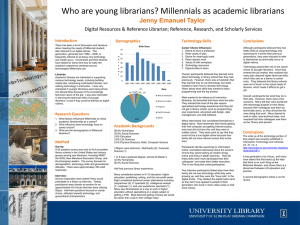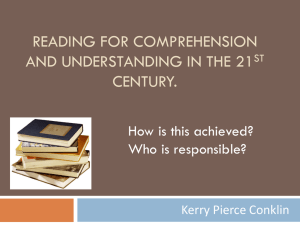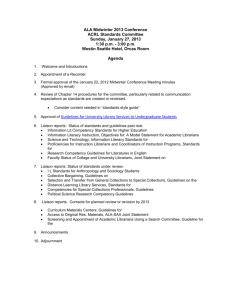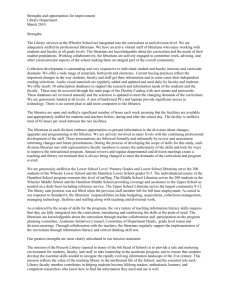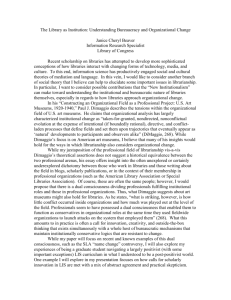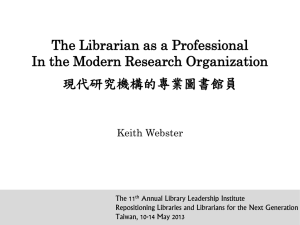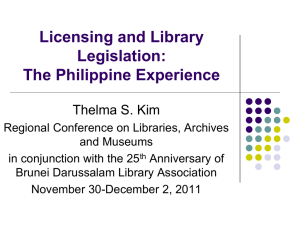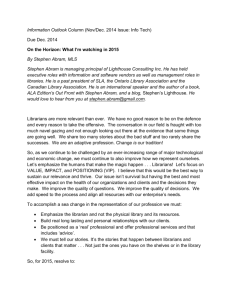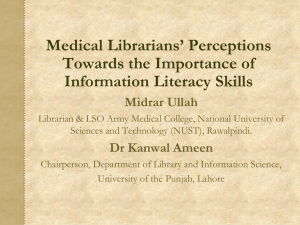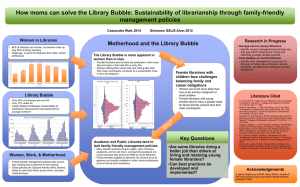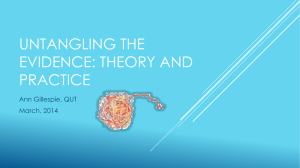Leadership Assessment Personal satisfaction Survey of Librarians
advertisement
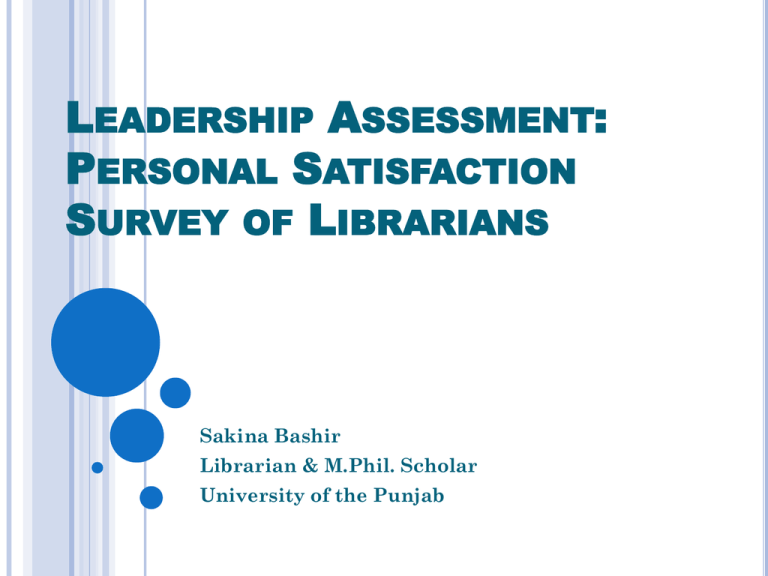
LEADERSHIP ASSESSMENT: PERSONAL SATISFACTION SURVEY OF LIBRARIANS Sakina Bashir Librarian & M.Phil. Scholar University of the Punjab ABSTRACT It is necessary for the professional growth and preparing librarians for managerial& leadership roles in librarianship as well as in libraries. This assessment survey is useful to design training program also. This paper reports results of a study conducted to explore librarian’s leadership skills in university libraries of Lahore. A survey research method was used to conduct the study. University Librarians of Lahore were selected as sample of the study. Findings indicate that library leaders have strong managerial, interpersonal and communication skills. ORGANIZATION OF STUDY Introduction Research Objectives & Questions Literature Review Research Design Discussion & Results Conclusion INTRODUCTION Leadership has become a saying in academics. It is a skill that can be developed, and leaders can be different from administrators or managers. (Kalin, 2008 ). These library professionals are taking new roles, responsibilities and reshaping higher education and academic librarianship one career at a time (Mech, 1996). CONT… Leadership qualities enhance the performance of librarians Leadership assessment surveys have not conducted to know the leadership qualities of university librarians specifically. This is the requirement for preparing library & information science professionals for further assuming management and leadership roles. Instruction programs can be designed effectively and implemented after assessment of the leadership skills of librarians. RESEARCH OBJECTIVES OF THE STUDY To examine important personal strength of the librarians To identify important areas of the leadership in libraries RESEARCH QUESTIONS What are the leadership qualities in librarian? What are the important areas of leadership? LITERATURE REVIEW Leadership in Librarianship Leadership competencies in Librarianship Leadership Education Program Library Leadership in Pakistan RESEARCH DESIGN Statements Research Method Survey Research Method Population Librarians of University libraries of Lahore Sampling Technique Convenient Data collection Method Data was collected through questionnaire from university librarian(n=100) Data Collection Tool Major areas of leadership were combined in a questionnaire (containing 28 statements) Response rate 95% Data Analysis SPSS-19 LEADERSHIP SKILLS AMONG UNIVERSITY LIBRARIANS (N=100) Statements Mean St. Deviation I can make and communicate decision quickly 1.86 .612 I can communicate my opinion with charm 1.85 and effectiveness .483 I expect my staff to be accountable and offer support 1.80 .576 I prove courage in all activities of library 1.71 .617 I can create a atmosphere of common trust 1.56 .520 Note:1=Very Agree, 2=Agree, 3=Undecided, 4 = Disagree, 5= Very Disagree MAJOR FINDINGS OF THE STUDY Statements Mean St. Deviation I represent in a way that encourages others. 3.69 1.092 I take responsibility of decisions. 3.18 .937 I can resolve the conflict 2.69 1.12 I involve others in planning 2.62 1.02 I support and show efficient management, of personal stress levels. 2.32 .748 I can manage future change 2.20 .858 Note:1=Very Agree, 2=Agree, 3=Undecided, 4 = Disagree, 5= Very Disagree DISCUSSION & RESULTS An analysis of the perceived leadership skills reveals that the librarians have leadership, management, and interpersonal skills. Twenty eight different statements used for assessment of leadership skills among university librarians were analyzed. This study explored strong areas of leadership like communication, coordination, innovation and planning for future change. Their leadership skills like decision making & communication of decision, courage, common trust are enlisted in the study. CONCLUSION These findings may be used for making instruction programs for library leaders. Future studies may also test relationship of leadership skills with other relevant variables. Particularly, the level of leadership and managerial skills should be related to the internal and external environment of the library. QUESTIONS THANKS
